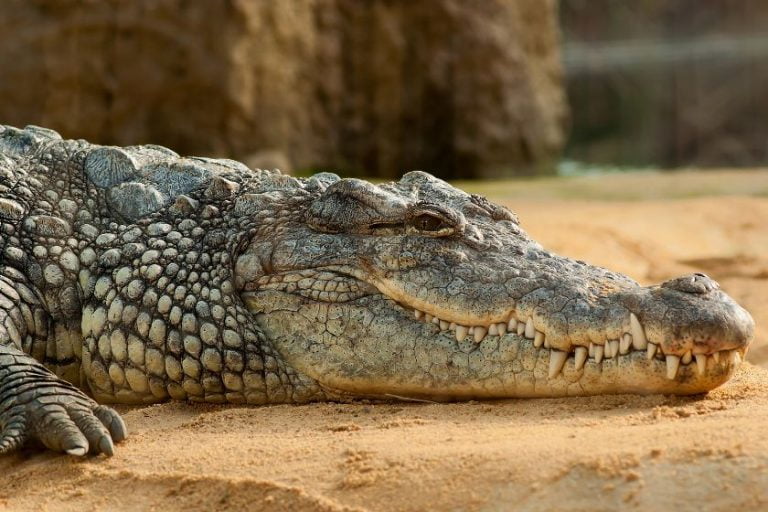Are Crocodiles Bulletproof?

Crocodiles have long fascinated humans with their prehistoric appearance and formidable presence. Often depicted as near-invincible predators, one question that frequently arises is whether crocodiles are bulletproof. This article will explore this intriguing topic, delving into the biology of crocodiles, examining their natural defenses, and evaluating the truth behind the myth of their bulletproof nature.
Understanding Crocodile Biology
The Anatomy of a Crocodile
Crocodiles are reptiles belonging to the family Crocodylidae, which has existed for over 200 million years. These ancient creatures possess a distinctive anatomy that contributes to their survival in diverse environments.
- Skull and Jaws: Crocodiles have a robust skull structure with powerful jaws capable of exerting immense pressure. This enables them to capture and crush prey with ease.
- Armor-like Skin: The skin of a crocodile is covered in scales known as scutes. These scutes are made of a tough, keratinized material that provides protection against environmental hazards and predators.
- Muscular Build: Their muscular bodies allow them to be agile and swift both in water and on land, making them adept hunters and formidable opponents.
Quick Info Table: Crocodile Features
| Feature | Description |
|---|---|
| Family | Crocodylidae |
| Skin | Covered in tough, keratinized scales (scutes) |
| Skull Structure | Robust with powerful jaws |
| Habitat | Freshwater and saltwater regions |
| Lifespan | Up to 70 years in the wild |
Natural Defenses of Crocodiles
The Role of Scutes
Crocodiles' scutes play a crucial role in their defense mechanisms. These bony, plate-like structures are embedded within the skin, offering a degree of protection against physical attacks. The scutes are particularly dense along the back and tail, forming a natural armor. However, while these scales are tough, they are not impenetrable.
The Myth of Bulletproof Crocodiles

The idea that crocodiles are bulletproof likely stems from their thick, armored skin, which can deflect certain low-caliber projectiles. Nonetheless, this does not make them invulnerable to bullets. High-caliber firearms can penetrate crocodile skin, especially if aimed at vital areas. Therefore, the term "bulletproof" is a misnomer; while crocodiles have formidable defenses, they are not immune to all forms of weaponry.
The Science Behind the Myth
Examining the Evidence
Several studies and field observations provide insight into the defensive capabilities of crocodiles. For instance, hunters and researchers have noted that crocodile skin can resist arrows and some small bullets. However, these defenses are not foolproof against modern firearms.
In regions where crocodiles are hunted, such as certain parts of Africa and Australia, there are accounts of crocodiles surviving gunshots. This resilience is due to their thick skin and robust anatomy, which can sometimes prevent fatal injuries. However, these instances are exceptions rather than the rule.
The Reality of Crocodile Defense
The notion of crocodiles being bulletproof is more myth than reality. While their natural armor offers significant protection, it is not invincible. Crocodiles rely on other defense mechanisms, such as their ability to remain submerged for extended periods, to evade threats.
Alternative Perspectives
Respecting Wildlife
The myth of bulletproof crocodiles underscores a broader issue: the importance of respecting and understanding wildlife. Crocodiles are apex predators in their ecosystems, playing a vital role in maintaining ecological balance. Rather than seeing them as adversaries, it is crucial to appreciate their role in biodiversity.
Conservation Efforts
Conservationists emphasize the need to protect crocodile populations, which face threats from habitat loss and illegal hunting. By dispelling myths and promoting education about these creatures, we can foster a more harmonious coexistence between humans and crocodiles.

Conclusion
In conclusion, while crocodiles are equipped with impressive natural defenses, they are not bulletproof. Their tough skin and robust anatomy provide a measure of protection, but they remain vulnerable to high-caliber weapons. Understanding the reality behind such myths can lead to greater respect for these ancient reptiles and highlight the importance of conservation efforts.
Reflecting on the information presented, it is clear that crocodiles are fascinating creatures deserving of our admiration and protection. By acknowledging their strengths and vulnerabilities, we can ensure that these remarkable animals continue to thrive in their natural habitats for generations to come.



Comments ()